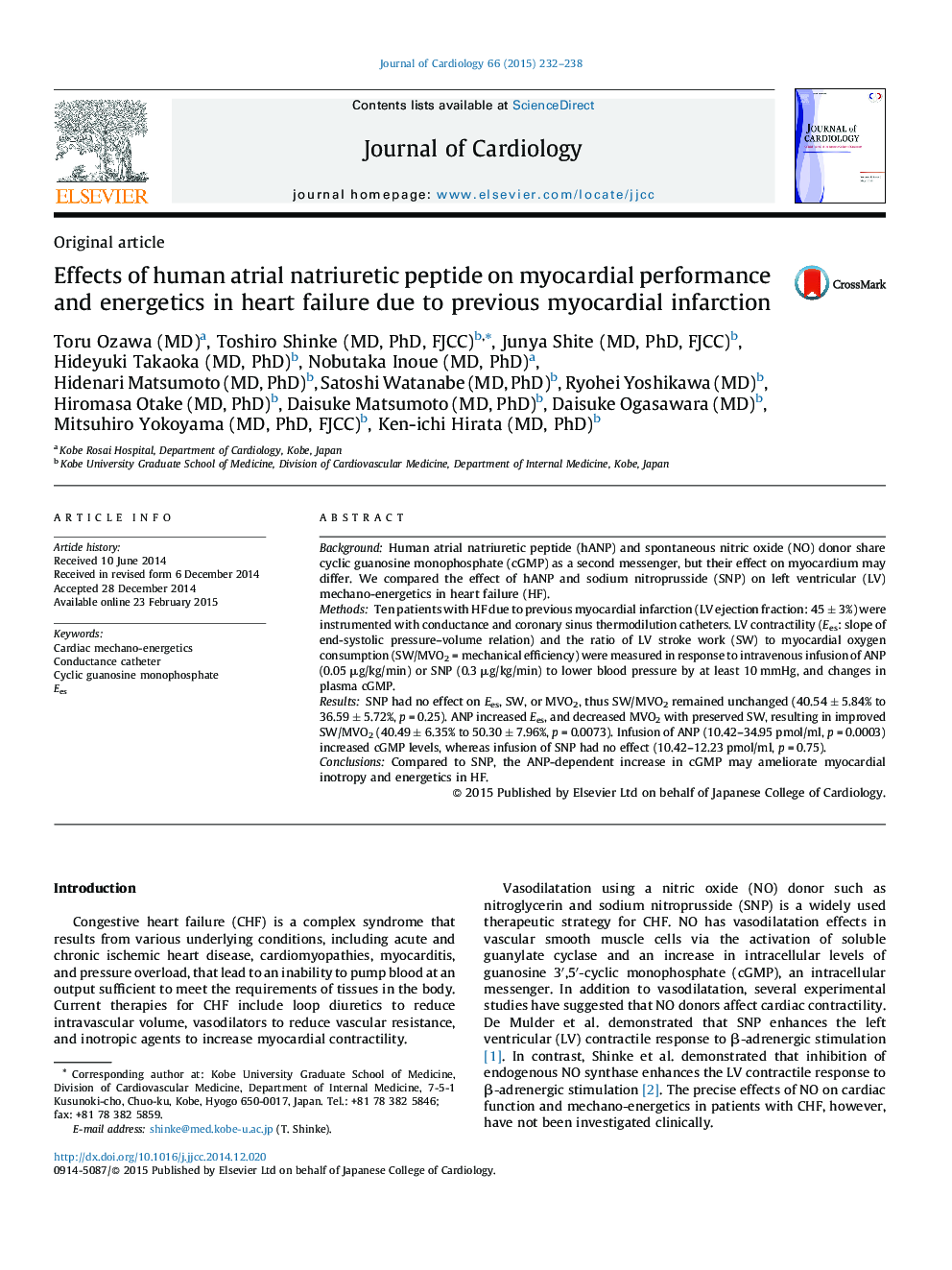| Article ID | Journal | Published Year | Pages | File Type |
|---|---|---|---|---|
| 2962884 | Journal of Cardiology | 2015 | 7 Pages |
BackgroundHuman atrial natriuretic peptide (hANP) and spontaneous nitric oxide (NO) donor share cyclic guanosine monophosphate (cGMP) as a second messenger, but their effect on myocardium may differ. We compared the effect of hANP and sodium nitroprusside (SNP) on left ventricular (LV) mechano-energetics in heart failure (HF).MethodsTen patients with HF due to previous myocardial infarction (LV ejection fraction: 45 ± 3%) were instrumented with conductance and coronary sinus thermodilution catheters. LV contractility (Ees: slope of end-systolic pressure–volume relation) and the ratio of LV stroke work (SW) to myocardial oxygen consumption (SW/MVO2 = mechanical efficiency) were measured in response to intravenous infusion of ANP (0.05 μg/kg/min) or SNP (0.3 μg/kg/min) to lower blood pressure by at least 10 mmHg, and changes in plasma cGMP.ResultsSNP had no effect on Ees, SW, or MVO2, thus SW/MVO2 remained unchanged (40.54 ± 5.84% to 36.59 ± 5.72%, p = 0.25). ANP increased Ees, and decreased MVO2 with preserved SW, resulting in improved SW/MVO2 (40.49 ± 6.35% to 50.30 ± 7.96%, p = 0.0073). Infusion of ANP (10.42–34.95 pmol/ml, p = 0.0003) increased cGMP levels, whereas infusion of SNP had no effect (10.42–12.23 pmol/ml, p = 0.75).ConclusionsCompared to SNP, the ANP-dependent increase in cGMP may ameliorate myocardial inotropy and energetics in HF.
